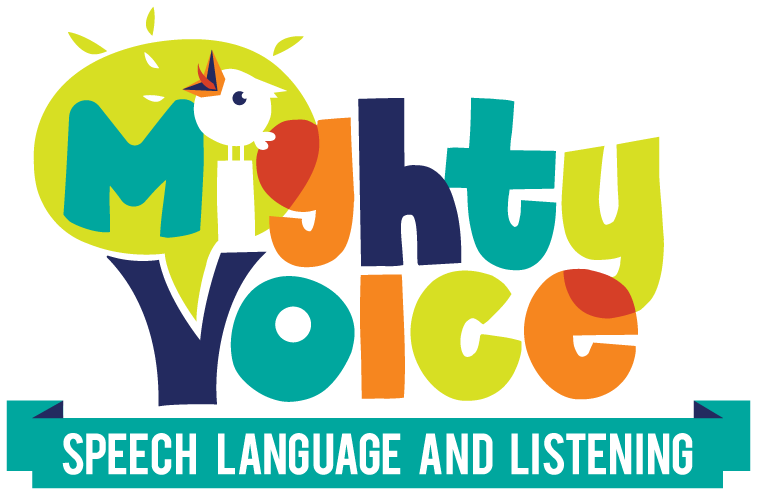As the school supplies take over the seasonal corner in Target and the yellow buses draped with banners advertising great pay for drivers appear, we’re reminded (whether we like it or not), that the beginning of school is just around the corner. And as a former classroom teacher and school-based SLP, I have to tell you…there are things your classroom teacher isn’t telling you.
Now, I’m making broad generalizations that of course won’t apply to every teacher and classroom, but stick with me. I think the more we understand each other, teachers and parents both, the better we can work together.
So what is it your child’s teacher isn’t telling you?
1. They may not know all of the details of your child’s Individual Education Plan (IEP)
As a parent, I know my internal dialogue would already be jumping up, waving arms in the air screaming “But it’s their job! It’s a legal document! It must be followed!” Consider this–Do you know exactly, specifically, everything that’s on your child’s IEP? Do you know each of their goals, every single accomodation in detail, the decision tree for placement decisions and how many minutes are spent in the classroom and each therapy each week/month/marking period?
If you do, you have an amazing memory. What most of us do know, and your teacher likely does too, is the broad strokes-what your child is working on, some of the things that will help them in the classroom, what the main technologies your child needs are in order to be successful.
Of course, your teacher has a copy of your child’s IEP to refer to for all of the details. So when you talk with them about your child’s goals, how much time they’re spending in the classroom, and when they’re using the share mic, a little grace and understanding can go a long way. Try to make the discussion about your child’s IEP into helping the teacher understand it, not quizzing her on each detail. Because if we’re honest, most of us couldn’t recite all 12 accommodations either.

2. Your child’s teacher really wants to be on the same team
For any parent that’s been around the IEP process for a while, you understand that there can be a push and pull with your school district and educational team. You want more services, they want to offer less. You want more resources devoted to special education, they want fewer. Not always, but sometimes.
Let me tell you this as a former school-based therapist…often times, teachers and therapists get stuck in the middle. They truly do want what’s best for your child, but they also want to keep their jobs. They want to give each child what he or she needs, but they are responsible for doing that for 28 or 30 children at the same time on very limited resources.
So what do we do? That elusive magic wand to fix all of the special education challenges hasn’t appeared in my toolbox yet, and probably not yours either.
What we can do though, is change our mindsets. Go into the year assuming the best of your child’s teacher, assuming he or she is on the same team and is doing their best for your child. If you need some help with this mindset shift (I know I do, often), thinking about Brene Brown’s idea that we’re all doing the best we can might help. She points out that when we start seeing things through this lens, it helps us respond differently.

3. They might be afraid to ask you questions about your child’s equipment
Think back to when you first found out about your child’s hearing loss and were introduced to the technology they have now. How long did it take you to get comfortable with the blinking lights, battery changes, names of all of the pieces, the troubleshooting, accessories, cords to hook up each thing, etc? It probably didn’t happen instantly, and it may not for your child’s teacher either.
But, sometimes teachers feel like they’re supposed to have it all figured out, and may feel like asking you a question makes them look incompetent. So do them a favor, ask them first. You can explain how overwhelming it was when it was all new to you, and ask if they’d like you to show them anything again. You can offer them a “quick reference” handout or cheat sheat for the battery lights on your child’s cochlear implant or hearing aid.
By offering this kind of “me first” support, you’re opening the door for them to ask you more often, and in turn support your child better in the classroom.

4. Your words of encouragement or thanks are the best gift
Think about your child’s classroom for a minute. How many students are there? How many emails/phone calls/drop ins do you think the teacher gets where parents question how something is being taught, a classroom management decision, or why their student didn’t get to be the line leader that day? Let me just tell you…SO many. If I had to guess, I’d say most teachers get far more complaints than words of encouragement.
When I used to work in the schools, one of the things I tried to do was call home when students were doing well. So often parents only get called when their child is in trouble or having difficulty, and of course, you need to hear the good things too.
Teachers need the same encouragement. Grabbing a coffee or snack for your child’s teacher is awesome and appreciated, but the note you write or the card your child makes will be remembered (and often cherished) far longer.

5. Therapists and specials teachers are often forgotten
This one comes from my experience as a school-based SLP. Sometimes, you get forgotten. Not in a mean way, and no one’s feelings are hurt, but your child’s therapists (speech therapist, occupational therapist, physical therapist, etc.) and specials teachers (PE, music, art, etc.) may be in and out of a number of buildings, may be forgotten on email lists or announcements, or your child’s main classroom teacher just may not remember to pass on every single piece of information to every single person who needs it.
When you send a message about your child that everyone needs to read, try to include their therapists and specials teachers. If their equipment is broken and you’re waiting on replacement parts, or if they’re going to be missing for implant surgery, give everyone the heads up.
If you build those relationships, your child’s therapists and specials teachers can be a wealth of information on how your child is actually hearing and functioning in different settings. Your child’s PE teacher has the perfect opportunity to see them in noise, and the therapists likely see them in a small group or individual setting versus a busy classroom. If you make a point of connecting and communicating with these professionals, you can often glean useful information you might not otherwise have.

